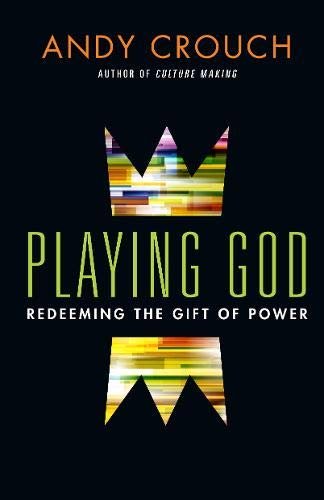Bearing the Image
A topic that I’ve considered here on a number of occasions is the sometimes tricky relationship between evangelism and social action in Christian life. It seems to me this is an important relationship to grapple with, especially as evangelicals—those who self-identify with the spreading of the gospel (the “evangel”) in evangelism—recapture their concern for justice. So I’ve drawn on the insights of René Padilla, Samuel Escobar, and John Stott, to name a few, in making the case that evangelism and social action are both necessary, and that connecting them doesn’t require reinventing the wheel—people wiser than us have already laid the groundwork for integral mission. And, incidentally, they’ve lived it too.
As Andy Crouch notes in Playing God: Redeeming The Gift of Power, despite the varying “emphases and preferences” of different traditions, few Christian groups today deny the importance of evangelism and justice, at least in principle. In other words, the divide between warring tribes—though by no means completely resolved—isn’t as gaping as it was through much of the twentieth century.
Crouch makes the case that what evangelism and doing justice have in common is that both are about restoring the marred image of God in his image bearers. Evangelism, he writes, is about “restoring the image bearers’ capacity for relationship and worship, where the true Creator God is named, known and blessed.” Doing justice, meanwhile, means “[restoring] the conditions that make image bearing possible.” As Gary Haugen has written elsewhere, when we act with compassion and courage on behalf of victims of oppression, it makes belief in a good God—one who loves justice and comes to the rescue—believable.
But Crouch puts his finger on a dilemma that may be unique to this generation of evangelicals: “Working for justice is cool. Proclaiming the gospel is not.” Indeed, it’s much more palatable to “join a movement” that even our unbelieving peers can get enthusiastic about, than to risk sounding arrogant or intolerant by articulating our belief that Jesus is the way, the truth, and the life. And while there are plenty of good reasons why we can and should join broad coalitions around causes that are just, we must always remember that these causes can only take us so far. In the end they stop short of the ultimate good—Christ himself, who is inaugurating a Kingdom of peace and justice.
None of this is to discourage Christians from pursuing justice, but with Crouch I agree that “the justice generation” of Christians would do well to reevaluate how the “Christian hope for a world made new” should inform and shape the pursuit:
You do not have to believe in the Creator God to want to alleviate suffering. But justice is about much more than relieving suffering—it is about a vision of human flourishing. And the audacious biblical claim is that even good things that seem to contribute to flourishing become idols when they become our ultimate ends. Even the laudable goals of economic development, political freedom and human rights are only ultimately good when they are put in the context of something more ultimate than themselves. When we try to establish justice apart from worship of the true God, at best we will, as Jayakumar reminded me, simply replace one set of god players with another. What will never be addressed by these thin, secular conceptions of justice is the heart of the biblical understanding of justice: the restoration of the human capacity to bear the image in all its fullness.
If “thin, secular conceptions of justice” fall short, where would “thick, biblical” conceptions lead us? How does the “Christian hope for a world made new” shape our vision for flourishing?
